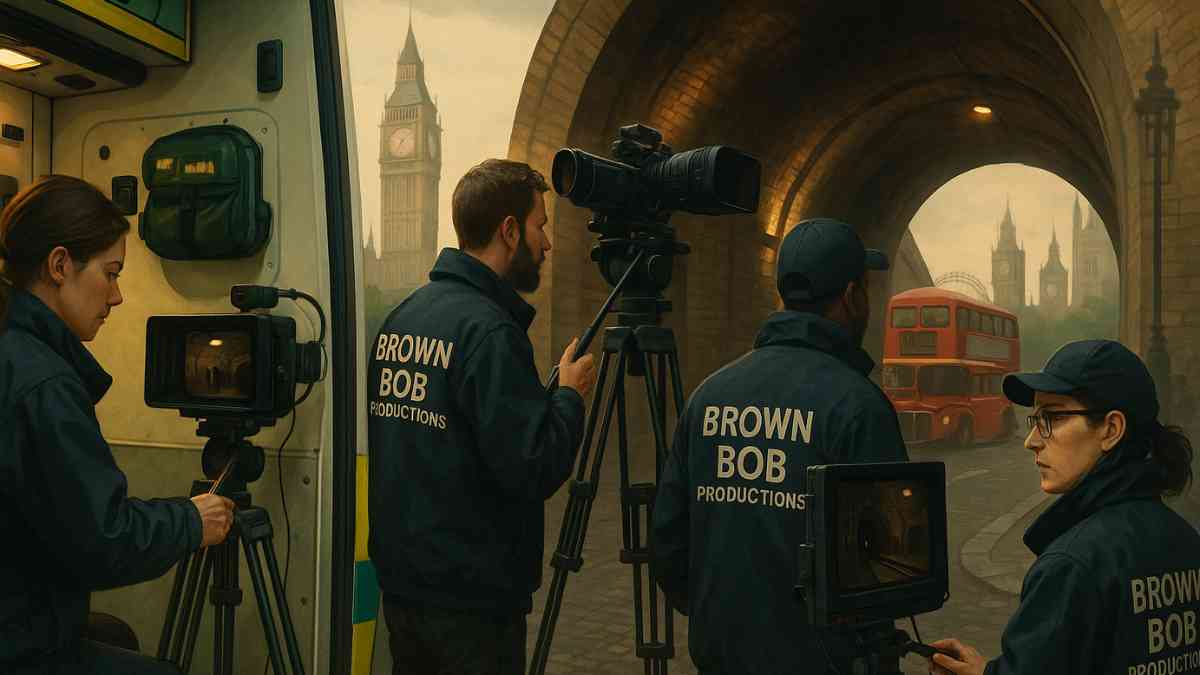Brown Bob Productions: A Legacy of Innovation in British Factual Television

In the ever-evolving landscape of British television, few production companies have left as unique a mark as Brown Bob Productions. Established in 2013 by Jacqueline Hewer and Nicki Gottlieb, the London-based outfit quickly became a household name in factual entertainment. Known for their distinctive fixed-rig filming approach and compelling storytelling, Brown Bob created content that resonated deeply with UK audiences and beyond. Though its journey came to an unexpected halt in 2024, its legacy remains entrenched in the fabric of documentary-style television.
Founders with a Vision
Jacqueline Hewer and Nicki Gottlieb, the co-founders of Brown Bob Productions, were industry veterans when they launched the company. Having worked in television for years, they recognised a gap in the market for authentic, access-driven factual content. Their combined experience and creative synergy became the foundation upon which Brown Bob was built.
They focused on high-volume, high-quality factual series, with a particular emphasis on fixed-rig filming — a technique that places multiple small, unobtrusive cameras in environments to capture natural and unscripted moments. This approach offered viewers a more intimate and immersive television experience.
Signature Style and Storytelling Approach
The production company’s hallmark was its ability to humanise everyday professions. Programmes like Inside the Ambulance showcased paramedics responding to emergency calls, filmed through body-worn and fixed cameras. This style allowed for an up-close view of critical, often emotional moments, without the artificiality of staged scenes.
Brown Bob’s commitment to honest storytelling extended across multiple formats, from emergency services to transport and infrastructure. Series such as Secrets of the London Underground and The Architecture the Railways Built blended historical insights with modern commentary, presenting information in a digestible and entertaining manner.
Breakthrough Productions
The company first gained national attention with Inside the Ambulance, a series commissioned by UKTV’s W channel. What began as a niche idea rapidly turned into a major success. Its compelling depiction of real-life medical emergencies and the emotional toll on NHS workers struck a chord with viewers across the UK.
Following this success, Brown Bob expanded its repertoire to include:
-
The Architecture the Railways Built
-
Secrets of the London Underground
-
Special Ops: Crime Squad UK
-
Secret Scotland
These shows not only performed well in terms of ratings but also received critical acclaim for their visual quality and editorial integrity. They were informative, educational, and emotionally engaging — a trifecta rarely achieved in factual programming.
Expansion and Diversification
In 2020, Brown Bob Productions took a bold step and expanded internationally by opening an office in New York. This move allowed the company to explore opportunities in the U.S. market while maintaining its core values and production standards. By 2023, they also launched a Welsh division called Brown Bob Cymru, aimed at supporting regional content production in Wales.
The expansion into Cardiff represented more than geographic growth — it was an affirmation of Brown Bob’s commitment to nurturing talent across the UK and telling stories rooted in local communities.
Leadership and Internal Growth
By 2022, the leadership team was strengthened further with the appointment of Daniel Bankover as Head of Production. His arrival marked a period of internal structuring and enhanced operational efficiency. Working alongside CEO Jacqueline Hewer, Bankover helped scale operations while maintaining the creative independence that was the company’s hallmark.
Under this leadership, Brown Bob streamlined its production pipelines, embraced modern editing technologies, and remained agile in the face of changing viewer habits and network expectations.
Challenges in the Industry
Despite its growth, Brown Bob was not immune to the challenges faced by the broader television industry. The factual production sector, in particular, saw intense competition, tighter commissioning budgets, and a shift towards digital and streaming platforms. These factors placed increased financial pressure on independent producers.
Commissioning cycles grew longer, and the risk appetite among networks decreased. Even highly respected companies like Brown Bob found it increasingly difficult to secure long-term deals, especially for original content in an environment dominated by reboots and formulaic programming.
The Closure of a Trailblazer
In a move that shocked many in the industry, Brown Bob Productions entered voluntary liquidation in September 2024. By October 4th of the same year, operations ceased entirely. The company cited a “tough commissioning environment” as a primary factor in its closure, underscoring the precarious state of independent television production in the UK.
The Cardiff branch also shut its doors, and Hilco Valuation Services was appointed to manage the sale of the company’s intellectual assets. This included show formats, brand rights, and digital properties. While the company closed, it did so with transparency and dignity — characteristics that mirrored its approach to storytelling.
Cultural Impact and Industry Legacy
Though no longer operational, Brown Bob Productions leaves behind a powerful legacy. It proved that factual programming can be both commercially viable and emotionally rich. It demonstrated the value of authenticity, sensitivity, and intelligent design in storytelling.
The company also opened doors for many budding filmmakers and producers. By setting up a base in Wales and branching into international markets, it created new employment and training opportunities across the sector.
Moreover, Brown Bob’s success inspired a wave of similar productions that have continued to adopt fixed-rig technology and immersive documentary techniques. It elevated the standards of factual entertainment, setting benchmarks for narrative, camera work, and sound design.
Lessons from Brown Bob’s Journey
The story of Brown Bob Productions serves as both inspiration and cautionary tale. On one hand, it showcases what is possible when creativity is matched with strategic thinking. On the other, it highlights the vulnerability of independent media companies in today’s volatile broadcasting environment.
From its inception, Brown Bob valued people — both in front of and behind the camera. This people-centric approach resonated strongly with viewers and made the company’s programmes more relatable. However, even the most well-regarded organisations must remain adaptable, especially as digital consumption continues to redefine the television landscape.
Looking Ahead: The Future of Factual Production
As we look to the future, the factual entertainment genre continues to thrive in the UK. Yet, the vacuum left by Brown Bob Productions has created space for new voices and methods. Emerging producers can draw inspiration from its legacy while also embracing the new realities of content distribution, including streaming platforms, social media integrations, and short-form storytelling.
The demise of Brown Bob also prompts a broader discussion about industry support for independent creators. For British television to remain dynamic, sustainable funding models and fairer commissioning practices are essential.
Conclusion
Brown Bob Productions may have closed its doors, but its influence endures. It pioneered a form of storytelling that put people and their experiences at the centre. From the corridors of hospitals to the tunnels of disused underground stations, Brown Bob told stories that mattered — stories that were honest, respectful, and deeply human.
In a world saturated with noise, Brown Bob gave viewers clarity. In an industry driven by spectacle, it chose substance. And in an age where authenticity is often sacrificed for virality, it remained true to its roots.



